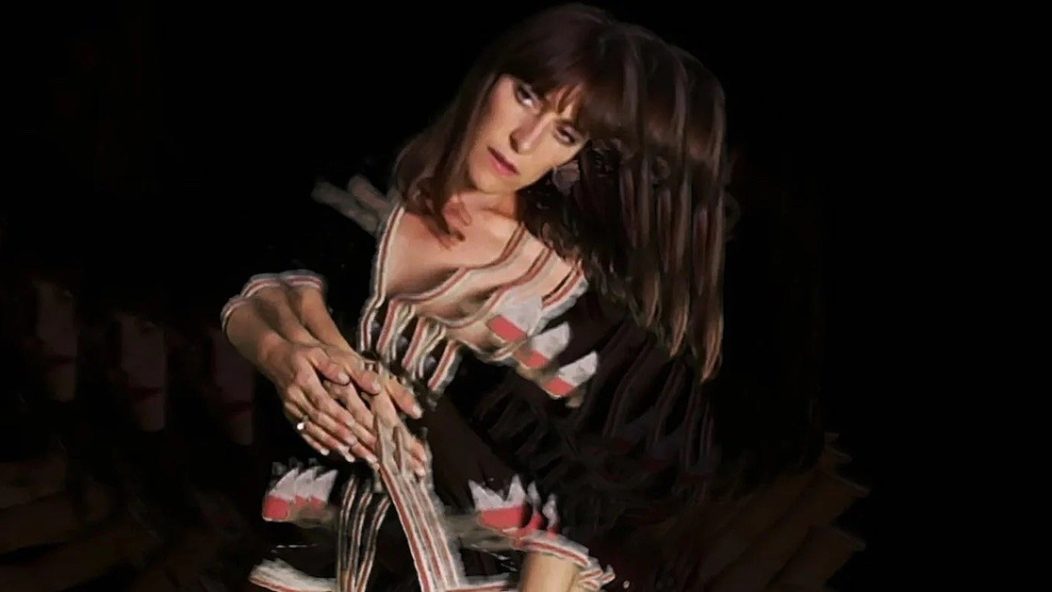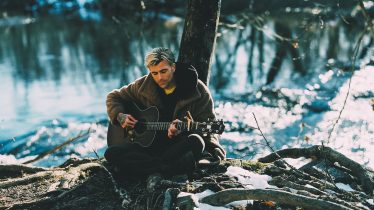
How Feist learned to start anew to create her tender album Multitudes and its inventive live show
Before Feist sets out on her Multitudes tour, she’s enjoying the simple things about being at home in Toronto. On this chilly springtime afternoon, that means going for a walk around her neighborhood. “I’m just calibrating to the amount of people walking by,” she says.
It’s been a while since the singer-songwriter embarked on a traditional tour, which recently kicked off in early May. Her last batch of shows, during which she workshopped many of the songs that appear on her new album Multitudes that arrived in April, was structured more like a residency. Those Multitudes shows debuted in Hamburg, Germany in 2021 and were both an answer to the limitations of a continued pandemic and a dream she’d long deferred. Unlike standard concerts where the performer appears on a stage, distanced from the audience, the residencies “[played] with the separation between artists and their audiences in all sorts of ways,” according to Variety. It was reported that there was no fanfare — no intro or lighting changes — just the artist suspended on a small circular riser as masked fans surrounded her. Without the typical demands of touring and filling a venue to capacity, Feist says, she was able to offer fans an “alternative production” that hinged upon a “communal experience.”
Read more: Every Taylor Swift album ranked
Now that the touring industry has returned with full force, she’s building upon the concept of the original residency in her new string of live dates. “We’re going to speak a bit with the language we’ve established in the first round and see what kind of conversation can be had with that vocabulary,” Feist says.
“It’s been a while since I’ve done this,” she says, reflecting on being in a new city every night versus spending more than a week in each location for the residency. “I don’t quite remember what one does to prepare.” (In 2022, she’d begun a European tour with Arcade Fire, but exited after two shows amid sexual misconduct allegations against lead singer Win Butler.)
Finding new ways to do the work she’s always done seems to be the overall theme of the singer’s current artistic phase, but it’s not exactly a new concept for her. From 2004’s Let It Die and 2007’s The Reminder (which featured the pop staples “Mushaboom” and “1234,” respectively) she chose to reject the chase for more hits and visibility. Instead, she released two albums, 2011’s Metals and 2017’s Pleasure that were full of raw, pensive melodies that gently lingered where her previous singles soared.
Multitudes was created during the pandemic, in the year and a half between the time in which Feist adopted a daughter and her father died. Prior to his death, he’d hunkered down in the singer’s Toronto pod, experiencing the earliest stages of motherhood with her. In a time when she wasn’t able to fully connect with many others, she was seeing her parents as full human beings for the first time. Through the birth of her daughter, she’d become aware of her own mortality and, thus, the mortality of her mother and father, too. “To lose him in that moment, it really shook me,” she says.
While her father was still alive, and in the early days of the pandemic, Feist participated in an experiment called Song a Day, where she and a group of artists, including the musicians Mac DeMarco and Maggie Rogers, created and submitted a new creation to one another each day. The “seeds” for a few songs from Multitudes were formed through Song a Day. The standout single “Hiding Out in the Open,” about a hesitant but determined love, came out of the experiment, as did the hushed “Martyr Moves” and the album closer “Songs for Sad Friends,” a resilient display of support in a time of immense communal fear and grief.
“Every time I try to make a record, I don’t remember how I did it the time before,” Feist says. But if each new album is like starting over, this one came with the added challenge of accounting for a new identity as a mom. Previous versions of herself had learned to navigate problems in a specific way. Now, facing a pandemic with a newborn forced her to realize her old ways didn’t quite work anymore. “This record encapsulates a time where [I was having to adapt] uncomfortably all the time. Everything I was doing, I was saying, ‘This isn’t going to serve me anymore,’ or, ‘These aren’t the conditions that I think I’m going to thrive in anymore.’ [It was] a lot of dismantling of old systems and that’s always uncomfortable,” she says.
When trying to describe this time, she references the popular state fair game where participants compete by shooting water pistols at a tiny target in order to propel horse figures along a miniature racetrack. “It’s nudging them all a little forward. Some of them seem in the lead and then they end up in the back,” she says. “You’re nudging to something that will one day present itself as completion.”
By the time Feist began the Multitudes residency, her father had died. The live shows became “a bookended way to give the grief a job.” On stage, the songs she’d created continued to evolve. In total, she performed about 11 songs during each show, although not all of them appear on the album. “They all kept shifting imperceptibly, like little tiny blasts of change. A line here, a line there. [I’d] change the way I approach the guitar. [I’d think], ‘That bridge is overwrought, the next time I play it I’m going to take that whole bridge out of the song,’” she says. “It was happening to all of them the whole tour, until eventually I’d land on something and be like, ‘OK, that one doesn’t need to change anymore.’”
By the time she got into the studio to create Multitudes, which included a few new songs that hadn’t appeared in the residency, Feist says she’d made it through the most “acute” stages of her grief. “I actually feel like the record has some grief in it, but mostly what I hear is the choice to lean optimistic whenever I feel I have any authorship in a moment,” she notes. “Often we feel like we’re along for the ride of a bunch of shit going on. If ever there’s a moment where I get my hands back on the wheel, I want to choose to be more aspirational. I want to choose to try to cultivate more joy. Losing my father and becoming a parent showed me this kind of flicker that our entire existence happens within. I don’t want to waste it.”
Now, with Multitudes complete, she’s having early ruminations about what a future project might sound like. Whereas the quiet productions on this album have sparked comparisons to lullabies, the singer thinks she might actually put out an album for children and parents in the future. “I have this dream project of making a lullaby album. It feels naturally occurring,” she says, noting she created hundreds in the moments before and after her daughter was born. Her lullabies would be the perfect tunes with which to lull babies into a peaceful sleep, but the lyrics would be created with the hope of soothing the parents who are often singing them.
Another musician might buckle at the thought of having to make something outside of their typical framework. Not Feist. She’s become quite accustomed to starting anew.










